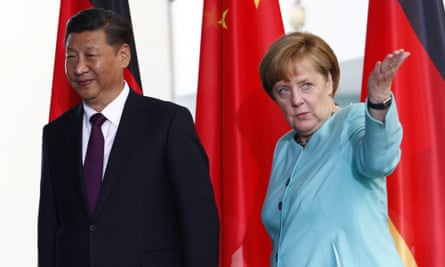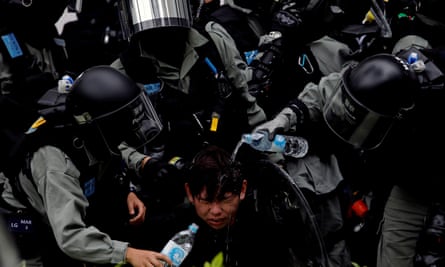How
Science Trumps Denial
Scientists
putting their career and health on the line can take heart from Galileo.
BY MARIO LIVIOMAY 6, 2020
There’s an old belief that truth will
always overcome error. Alas, history tells us something different. Without
someone to fight for it, to put error on the defensive, truth may languish. It
may even be lost, at least for some time. No one understood this better than
the renowned Italian scientist Galileo Galilei.
It is easy to imagine the man who for a
while almost single-handedly founded the methods and practices of modern
science as some sort of Renaissance ivory-tower intellectual, uninterested and
unwilling to sully himself by getting down into the trenches in defense of
science. But Galileo was not only a relentless advocate for what science could
teach the rest of us. He was a master in outreach and a brilliant pioneer in
the art of getting his message across.
Today it may be hard to believe that
science needs to be defended. But a political storm that denies the facts of
science has swept across the land. This denialism ranges from the initial
response to the COVID-19 pandemic to the reality of climate change. It’s heard
in the preposterous arguments against vaccinating children and Darwin’s theory
of evolution by means of natural selection. The scientists putting their
careers, reputations, and even their health on the line to educate the public
can take heart from Galileo, whose courageous resistance led the way.
A crucial first step, one that took
Galileo a bit of time to take, was to switch from publishing his findings in
Latin, as was the custom for scientific writings at the time, to the Italian
vernacular, the speech of the common people. This enabled not just the highly
educated elite but anyone who was intellectually curious to hear and learn
about the new scientific work. Even when risking offense (which Galileo never
shied away from)—for instance, in responding to a German Jesuit astronomer who
disagreed with him on the nature of sunspots (mysterious dark areas observed on
the surface of the sun)—Galileo replied in the vernacular, because, as he
explained, “I must have everyone able to read it.” An additional motive may
have been that Galileo wanted to ensure that no one would somehow distort the
meaning of what he had written.
Galileo also understood that while the
Church had the pomp and magic of decades of art and music, science had the
enchantment of a new invention—the telescope. Even he wasn’t immune to its
seductive powers, writing in his famous booklet The Sidereal Messenger:
“In this short treatise I propose great things for inspection and contemplation
by every explorer of Nature. Great, I say, because of the excellence of the
things themselves, because of their newness, unheard of through the ages, and
also because of the instrument with the benefit of which they make themselves
manifest to our sight. “ And that gave him his second plan for an ambitious
outreach campaign.
With alternative facts acting like real
facts, there are Galileo’s heirs, throwing up their hands and attempts to make
lies sound like truth.
What if he could distribute telescopes
(together with detailed instructions for their use and his booklet about the
discoveries) all across Europe, so that all the influential people, that is,
the patrons of scientists—dukes and cardinals, could observe with
their own eyes far out into the heavens. They would see the stunning craters
and mountains that cover the surface of the moon, four previously unseen
satellites of Jupiter, dark spots on the surface of the sun, and the vast
number of stars that make up the Milky Way.
But telescopes were both expensive and
technically difficult to produce. Their lenses had to be of the highest
quality, to provide both the ability to see faint objects and high resolution.
“Very fine lenses that can show all observations are quite rare and, of the
more than sixty I have made, with great effort and expense, I have only been
able to retain a very small number,” Galileo wrote on March 19, 1610. Who would
front the cost of such a monumental and risky project?
Today the papacy is arguably the single
most influential and powerful religious institution in the world. But its power
is mostly in the moral and religious realms. In Galileo’s time, the papacy was
a political power of significance, gobbling up failed dukedoms elsewhere,
merging them into what became known as the “papal states.” The persons with the
greatest interest in appearing strong in front of the papacy were the heads of
neighboring states at the time.
So it is not surprising that Galileo
presented his grandiose scheme to the Tuscan court and the Grand Duke Cosimo II
de’ Medici. Nor is it surprising that Cosimo agreed to finance the
manufacturing of all the telescopes. On his own, he also instructed the Tuscan
ambassadors to all the major European capitals to help publicize Galileo’s
discoveries. In doing so he tied the House of Medici, ruler of the foundational
city of the Renaissance, Florence, to modern science. A win-win for both the
Grand Duke and Galileo.
Last, Galileo instinctively understood
what modern PR specialists refer to as the “quick response.” He did not let
even one unkind word be said about his discoveries without an immediate reply.
And his pen could be sharp.
For example, the Jesuit mathematician
Orazio Grassi (hiding behind the pseudonym of Sarsi) published a book
entitled The Astronomical and Philosophical Balance, in which he
criticized Galileo’s ideas on comets and on the nature of heat. In it, Grassi
mistakenly thought that he would strengthen his argument by citing a legendary
tale about the ancient Babylonians cooking eggs by whirling them on slings.
Really?
Galileo responded with a stupendous piece
of polemic literature entitled The Assayer, in which he pounced on this
fabled story like a cat on a mouse.
“If Sarsi wishes me to believe, on the
word of Suidas [a Greek historian], that the Babylonians cooked eggs by
whirling them rapidly in slings, I shall believe it; but I shall say that the
cause of this effect is very far from the one he attributes to it,” he wrote. “
To discover the true cause, I reason as follows: ‘If we do not achieve an
effect which others formerly achieved, it must be that we lack something in our
operation which was the cause of this effect succeeding, and if we lack one
thing only, then this alone can be the true cause. Now we do not lack eggs, or
slings, or sturdy fellows to whirl them, and still they do not cook, but rather
cool down faster if hot. And since we lack nothing except being Babylonians,
then being Babylonian is the cause of the egg hardening.’”
Galileo understood what modern PR
specialists refer to as the “quick response.” He did not let one unkind word go
without an immediate reply.
Did Galileo’s efforts save science from
being cast aside perhaps for decades, even centuries? Unfortunately, not quite.
The trial in which he was convicted by the Inquisition for “vehement suspicion
of heresy” exerted a chilling effect on progress in deciphering the laws
governing the cosmos. The famous French philosopher and scientist René
Descartes wrote in a letter: “I inquired in Leiden and Amsterdam whether
Galileo’s World System was available, for I thought I had heard that
it was published in Italy last year. I was told that it had indeed been
published, but that all the copies had immediately been burnt in Rome, and that
Galileo had been convicted and fined. I was so astonished at this that I almost
decided to burn all my papers, or at least to let no one see them.”
I suspect that there are still too few of
us who can tell exactly what Galileo discovered and why he is such an important
figure to the birth of modern science. But around the world, in conversations
as brittle as today’s politics, with alternative facts acting like real facts,
there are Galileo’s heirs, throwing up their hands at such attempts to make
lies seem like the truth and worse, the truth like a lie, responding with just
four words: “And yet it moves.”
Galileo may have never really uttered
these words. He surely didn’t say that phrase in front of the Inquisitors—that
would have been insanely dangerous. But whether the motto came first from his
own mouth, that of a supporter whom he met during the years the Church put him
under house arrest after his trial, or a later historian, we know one thing for
sure. That motto represents everything Galileo stood for. It conveys the clear
message of: In spite of what you may believe, these are the facts! That science
won at the end is not solely because of the methods and rules that Galileo set
out for what we accept to be true. Science prevailed because Galileo put his
life and his personal freedom on the line to defend it.
Mario Livio is an astrophysicist and
author. His new book is Galileo: And the Science Deniers.




